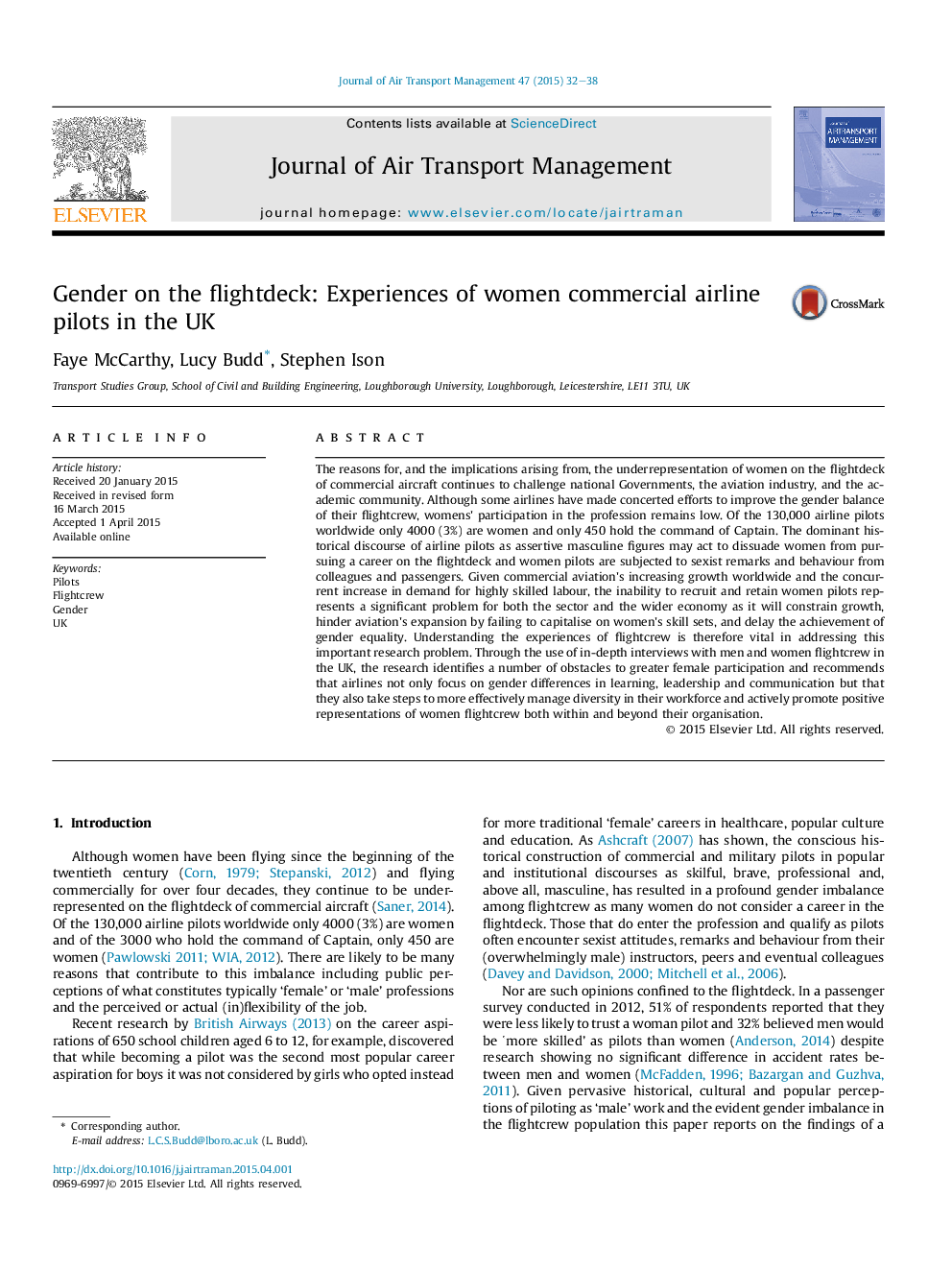| Article ID | Journal | Published Year | Pages | File Type |
|---|---|---|---|---|
| 7435687 | Journal of Air Transport Management | 2015 | 7 Pages |
Abstract
The reasons for, and the implications arising from, the underrepresentation of women on the flightdeck of commercial aircraft continues to challenge national Governments, the aviation industry, and the academic community. Although some airlines have made concerted efforts to improve the gender balance of their flightcrew, womens' participation in the profession remains low. Of the 130,000 airline pilots worldwide only 4000 (3%) are women and only 450 hold the command of Captain. The dominant historical discourse of airline pilots as assertive masculine figures may act to dissuade women from pursuing a career on the flightdeck and women pilots are subjected to sexist remarks and behaviour from colleagues and passengers. Given commercial aviation's increasing growth worldwide and the concurrent increase in demand for highly skilled labour, the inability to recruit and retain women pilots represents a significant problem for both the sector and the wider economy as it will constrain growth, hinder aviation's expansion by failing to capitalise on women's skill sets, and delay the achievement of gender equality. Understanding the experiences of flightcrew is therefore vital in addressing this important research problem. Through the use of in-depth interviews with men and women flightcrew in the UK, the research identifies a number of obstacles to greater female participation and recommends that airlines not only focus on gender differences in learning, leadership and communication but that they also take steps to more effectively manage diversity in their workforce and actively promote positive representations of women flightcrew both within and beyond their organisation.
Related Topics
Social Sciences and Humanities
Business, Management and Accounting
Strategy and Management
Authors
Faye McCarthy, Lucy Budd, Stephen Ison,
